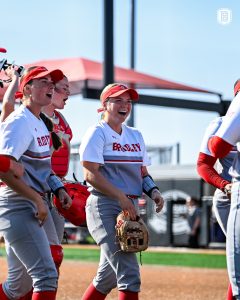The first weekend of the NCAA men’s basketball tournament is a must-see event. Small schools get their chances to knock off the big boys of college basketball and often do.
However, the NCAA is attempting to ruin arguably the best event in American sports.
After this season, the NCAA can opt out of its $6 billion television contract with CBS, which has led to the possibility of expanding the men’s basketball tournament field from 65 to 96 teams.
From their refusal to move away from the BCS system in college football to the speculation of expanding to a 96-team field in college basketball, the NCAA has proven time and time again making money is more important than the product.
The move is nothing more than the NCAA being greedy and that greed will hurt college basketball in the long run.
Increasing the field would lead to 31 more games and give the top 32 teams a bye. Giving teams byes will make the tournament a lot less entertaining.
Part of the intrigue of the tournament is seeing which small schools can upset the higher-ranked powers of college basketball. Giving the best 32 teams a bye will result in smaller schools playing middle of the pack BCS schools.
Who wants to watch Old Dominion play North Carolina State in the first round? I know I don’t.
Adding more teams would result in the tournament lasting four weeks instead of three. Three weeks is perfect. It’s not too long or too short.
Adding another week would create viewer fatigue and ultimately lead to less interest as the tournament progresses.
With 65 teams the tournament field is already watered down to some degree. Middle of the pack BCS schools make the tournament and have no business being there. Adding 31 teams to the mix will only further compound the problem.
Making the NCAA tournament should be an accomplishment, not a given. Adding more teams would mean that more than 25 percent of Div. 1 schools make the tournament.
That is way too many teams competing for a chance at a national championship. It makes the opportunity less unique and special.
Part of the intrigue and mainstream popularity of the NCAA tournament is office pools. Do you really think Betty in accounting will fill out a 96-team tournament bracket? There’s no way your average college basketball fan will.
The National Invitational Tournament is the second-best option next to the NCAA tournament.
The best 32 teams that don’t make the NCAA tournament end up in the NIT.
Before the NCAA tournament, the national champion was awarded to who won the NIT. The tournament has a great history and is still extremely prestigious. The Final Four of the NIT is played in Madison Square Garden in New York and is nationally televised.
It’s a great way for mid-majors to make a name for themselves and garner attention on a national stage. If the NCAA tournament field were to expand it would essentially make the NIT obsolete.
Ultimately, tournament expansion will happen because most college coaches as well as administrators of universities are all for it.
College coaches see expansion as a good way to increase job security. If a coach is consistently making the NCAA tournament field it would be hard for athletic directors and presidents to justify firing that coach.
Large amounts of money are guaranteed to schools that reach and win in the tournament. Administrators see expansion as a good way to increase funds.
Expanding the field to 96 teams is the worst thing the NCAA can do to the fans of college basketball. As it stands, the tournament is the best post-season in sports. Adding more teams will only dilute the field and take away from the accomplishment of making the tournament.
Alex Ross is a freshman sports communication major from Fishers, Ind. He is the Scout assistant sports editor.
Direct comments, questions and other responses agross@mail.bradley.edu.




